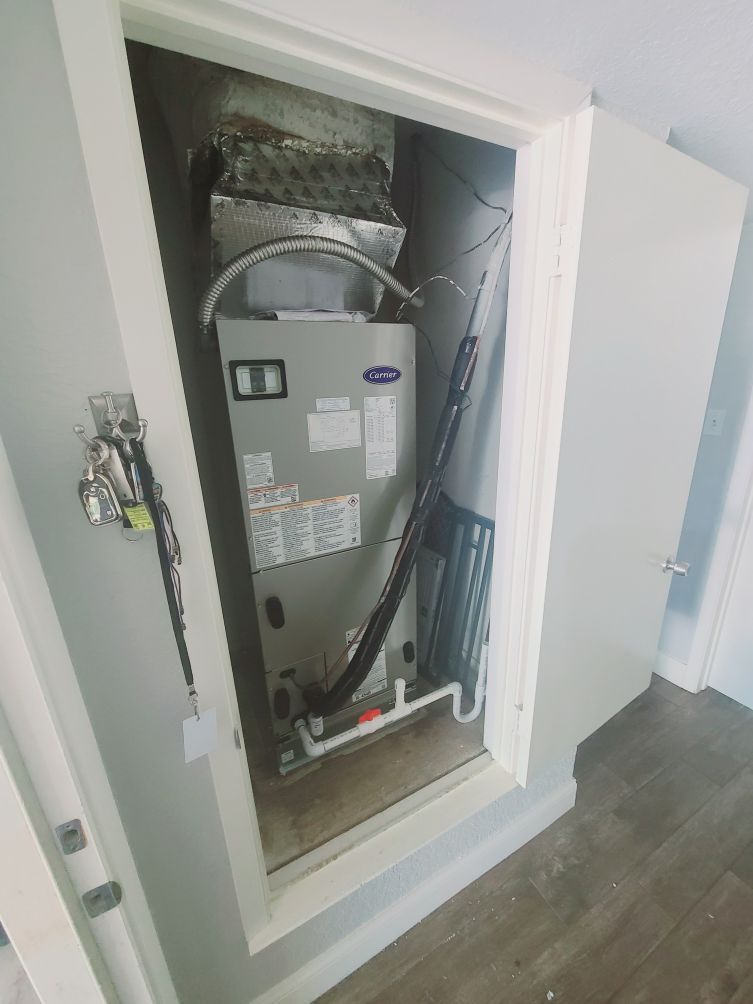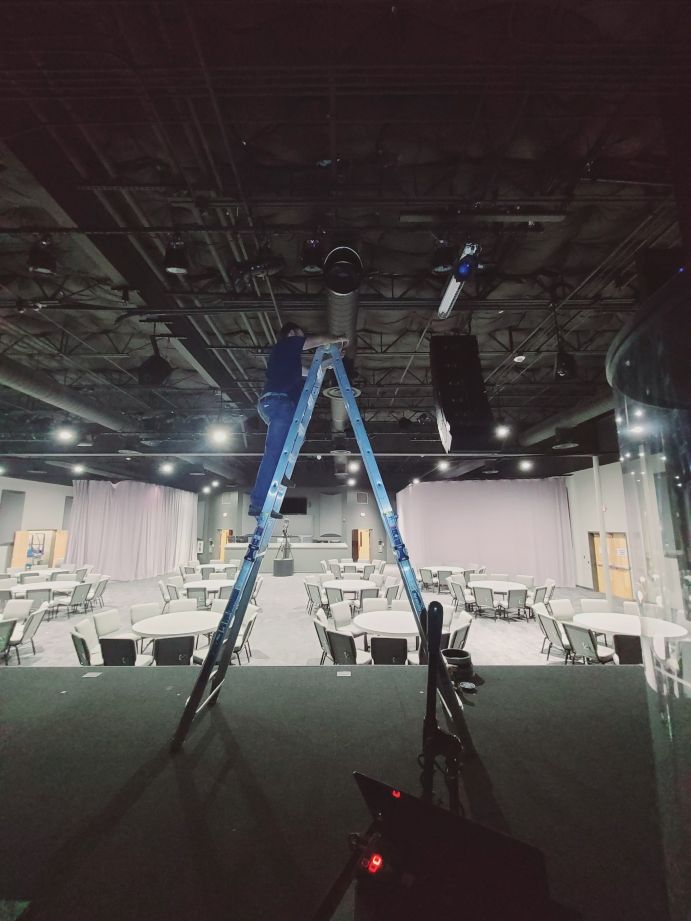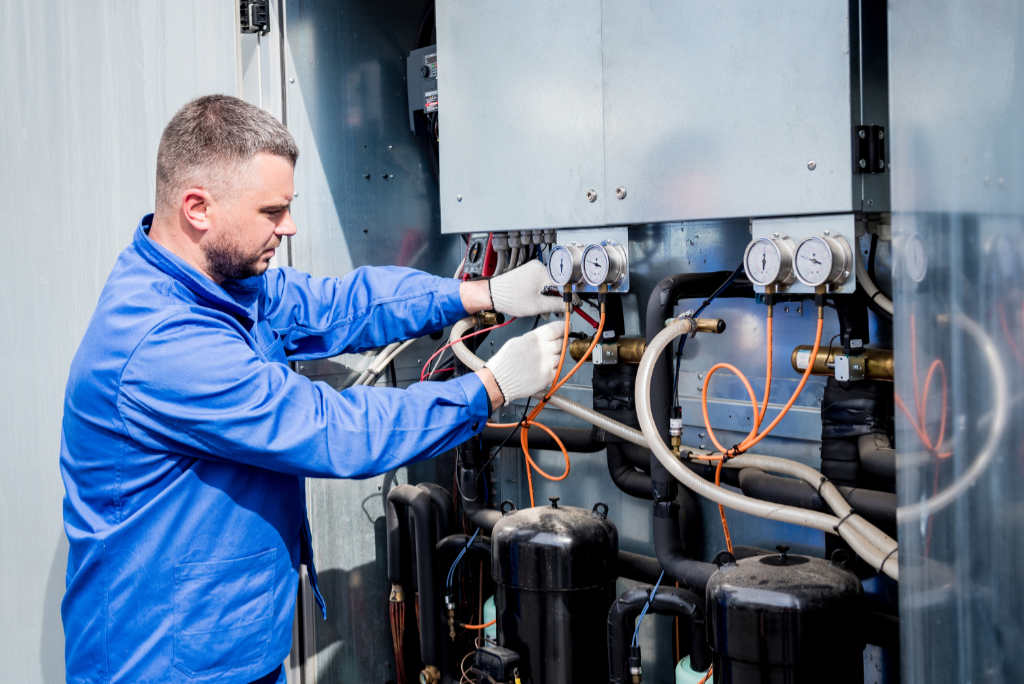Why Professional Commercial HVAC Installation Matters
The Role of HVAC in Business Operations
A commercial HVAC system is more than just a building amenity—it’s a key part of daily operations. Proper heating and cooling keep employees comfortable and help maintain optimal working conditions. In customer-facing environments, indoor air quality and temperature control can directly impact customer experience and satisfaction. A well-designed and professionally installed HVAC system ensures consistent performance throughout the year.
Energy Efficiency and Cost Savings
Choosing a professional team for commercial HVAC installation helps maximize energy efficiency from the start. Oversized or improperly installed systems can lead to wasted energy and higher utility costs. Comfort Conditioning takes the time to assess the building layout, size, and usage to recommend a system that minimizes energy use without compromising performance. This approach enables businesses to save money over time through lower monthly bills and reduced maintenance costs.
Comfort, Productivity, and Tenant Satisfaction
For property managers and building owners, comfort directly affects tenant retention and lease renewals. A new, properly installed commercial HVAC system supports a consistent indoor environment that promotes productivity, employee health, and customer comfort. Whether managing a multi-tenant facility or a single-location business, HVAC reliability helps keep operations running smoothly.

Types of Commercial HVAC Systems Installed
Rooftop Units and Packaged Systems
Rooftop units (RTUs) are standard in commercial buildings due to their space-saving design and easy access for maintenance. These packaged systems combine both heating and cooling in a single unit, making them ideal for businesses looking to simplify installation and service. Comfort Conditioning installs a range of RTUs designed for energy efficiency and performance across various building sizes.
Split Systems and Heat Pumps
Split systems are another widely used option for commercial HVAC installation. They consist of an indoor air handler and an outdoor condenser, allowing for flexible installation in buildings with specific layout constraints. Heat pumps, which provide both heating and cooling, are an energy-efficient solution for moderate climates. Comfort Conditioning helps businesses select the optimal configuration based on the facility’s structure and operational needs.
VRF/VRV Systems for Larger Facilities
Variable Refrigerant Flow (VRF) and Variable Refrigerant Volume (VRV) systems offer advanced climate control for larger or multi-zone buildings. These systems enable simultaneous heating and cooling in different zones, making them ideal for commercial properties with diverse occupancy needs. Comfort Conditioning is experienced in installing VRF/VRV systems for office buildings, schools, healthcare facilities, and other complex environments where zoned comfort is a priority.

Industries Served with Custom HVAC Solutions
Office Buildings and Corporate Campuses
Comfort Conditioning installs HVAC systems tailored to the demands of office environments. These spaces require consistent temperature control to maintain employee productivity and comfort. The team considers factors like occupancy patterns, floor plans, and zoning requirements when designing systems for office buildings or multi-tenant campuses.
Retail Stores and Shopping Centers
Retail environments need HVAC systems that support both customer experience and merchandise protection. Proper ventilation, humidity control, and temperature balance are critical in these spaces. Comfort Conditioning provides commercial HVAC installation services tailored to meet the diverse needs of small retail shops, large anchor stores, and entire shopping centers.
Warehouses and Industrial Facilities
Large open areas such as warehouses and production facilities often require customized climate control systems. Comfort Conditioning installs high-capacity heating and cooling solutions that can manage airflow, air quality, and temperature across large industrial spaces. These installations are designed to support operational safety and equipment reliability.
Restaurants and Hospitality Businesses
Restaurants, hotels, and event venues require HVAC systems that manage both comfort and indoor air quality. Kitchens generate heat and moisture, while dining and guest areas demand consistent cooling and ventilation. Comfort Conditioning offers system designs that address these unique zoning and air flow challenges while maintaining energy efficiency.
What to Expect from a Commercial HVAC Installation Process
Site Assessment and System Sizing
The first step in any commercial HVAC installation is a thorough site assessment. Comfort Conditioning evaluates the size, layout, insulation, and existing ductwork of the facility to ensure optimal performance. Proper system sizing is critical—an undersized unit will struggle to maintain comfort, while an oversized system may cycle too often and waste energy. A detailed assessment ensures the system selected will meet the building’s specific requirements.
Equipment Selection and Layout Planning
Once the assessment is complete, the team recommends equipment based on the facility’s demands and operational goals. This includes selecting between system types, brands, and energy efficiency ratings. Comfort Conditioning also develops a layout plan that supports optimal air distribution and minimizes disruption to the building’s daily operations.
Installation Timeline and Minimal Business Disruption
Comfort Conditioning collaborates with business owners and facility managers to schedule installations at times that minimize disruption to normal operations. Whether it’s a phased approach or off-hours work, the team is committed to completing installations on time and within scope. Safety protocols are followed to protect staff and property during every phase of the installation.
Final Testing, Balancing, and Compliance
After installation, the system undergoes comprehensive testing to confirm performance. Airflow is balanced, thermostats are calibrated, and safety features are verified. Comfort Conditioning ensures the entire installation meets local building codes and industry standards. All documentation, including warranty information and maintenance recommendations, is provided to the business at completion.
Benefits of Choosing Comfort Conditioning for Commercial HVAC Installation
Experienced Technicians Trained in Commercial Environments
Comfort Conditioning employs licensed HVAC technicians with specific experience in commercial system installations. The team is trained to work in active business settings, ensuring minimal disruption and adherence to commercial safety standards. Their expertise ensures a seamless installation process and reliable system performance from the outset.
Tailored HVAC Design for Your Business Needs
No two commercial buildings are precisely alike. Comfort Conditioning offers customized HVAC design and installation services tailored to each client’s unique business type, facility layout, and operational objectives. Whether it’s a new build, retrofit, or system replacement, the approach is always tailored to meet the unique needs of the property.
Commitment to Energy Efficiency and Code Compliance
Every commercial HVAC installation is performed with a focus on energy efficiency and long-term value. Comfort Conditioning installs systems that comply with current energy codes and deliver measurable savings through reduced operating costs. Equipment is selected not only for its capacity but also for its energy performance and compatibility with available rebates or incentive programs.
Post-Installation Support and Maintenance Options
Support doesn’t end after the system is installed. Comfort Conditioning offers ongoing service agreements and maintenance plans designed to extend system life and maintain peak performance. Regular inspections, filter changes, and system tune-ups help prevent breakdowns and reduce operating expenses over time.

Common Signs It's Time to Replace or Install a New HVAC System
Rising Energy Bills and Frequent Repairs
One of the most evident signs that it’s time for a new commercial HVAC installation is a noticeable increase in energy bills. Older systems often operate inefficiently, resulting in higher monthly costs. If the system also requires frequent repairs, it may be more cost-effective to invest in a new unit rather than continue patching aging equipment.
Inconsistent Temperatures or Poor Airflow
Uneven temperatures, hot and cold spots, or poor airflow throughout a facility can indicate that the current HVAC system is no longer performing adequately. These issues often stem from outdated components, failing ductwork, or improper sizing—problems that a professional installation can resolve.
System Age and Outdated Technology
Most commercial HVAC systems have a lifespan of 15 to 20 years. As systems age, their efficiency declines, and parts become harder to find. Additionally, modern HVAC systems provide significant improvements in energy efficiency, advanced controls, and zoning capabilities. Upgrading to a new system ensures better performance and long-term savings.
Business Expansion or Facility Renovation
If a business is growing, adding square footage, or repurposing its facility layout, the existing HVAC system may no longer be sufficient. Comfort Conditioning can assess the updated space and recommend a commercial HVAC installation plan that aligns with the building’s new requirements.
